 | Henry Nathan Wheeler - Trigonometry - 1876 - 204 pages
...the sides is less than 360°. L The sum of the angles is greater than 180°. m. Each angle is greater than the difference between 180° and the sum of the other two angles. n. A side which differs more from 90° than another side is in the same quadrant as its opposite angle.... | |
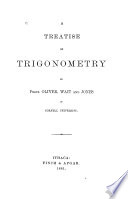 | James Edward Oliver - Trigonometry - 1881 - 120 pages
...lies between 180° and 540°. Each side is less than the sum of the other two. Each angle is greater than the difference between 180° and the sum of the other two. Of any two unequal sides, the greater lies opposite the greater angle ; and conversely. Each side or... | |
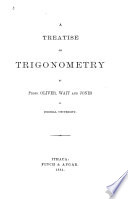 | Cornell University. Department of Mathematics - 1881 - 120 pages
...lies between 180° aud 540°. Each side is less than the sum of the other two. Each angle is greater than the difference between 180° and the sum of the other two. Of any two unequal sides, the greater lies opposite the greater angle ; and conversely. Each side or... | |
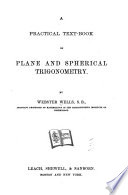 | Webster Wells - Trigonometry - 1883 - 234 pages
...-с1, А'=Ш°-а, Б'=180°-Ь, С"=180°-с. (г) . Either angle of a spherical triangle is greater than the difference between 180° and the sum of the other two angles. 187. A spherical triangle is called right, bi-rectangular, or tri-rectangular, according as it has... | |
 | Webster Wells - Geometry - 1886 - 392 pages
...one, two, or three obtuse angles. 671. COROLLARY II. Either angle of a spherical triangle is greater than the difference between 180° and the sum of the other two angles. For since A + B + C > 180° (§ 668) , we have A>180°-(B+C); which proves the theorem when B+C< 180°.... | |
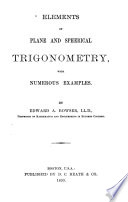 | Edward Albert Bowser - Trigonometry - 1892 - 202 pages
...between 0° and 360°. The sum of the three angles lies between 180° and 540°. Each angle is greater than the difference between 180° and the sum of the other two. If two sides are equal, the angles opposite them are equal ; and conversely. If two sides are unequal,... | |
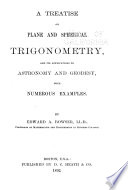 | Edward Albert Bowser - Trigonometry - 1892 - 392 pages
...between 0° and 360°. The sum of the three angles lies between 180° and 540°. Each angle is greater than the difference between 180° and the sum of the other two. If two sides are equal, the angles opposite them are equal ; and conversely. If two sides are unequal,... | |
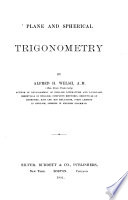 | Alfred Hix Welsh - Plane trigonometry - 1894 - 228 pages
...lies between 180° and 540°. Each side is less than the sum of the other two. Each angle is greater than the difference between 180° and the sum of the other two. Of any two unequal sides, the greater lies opposite the greater angle ; and conversely. Each side or... | |
 | William Chauvenet - Geometry - 1896 - 274 pages
...sides is less than 360°. IV. The sum of the angles is greater than 180°. V. Each angle is greater than the difference between 180° and the sum of the other two angles. For, by IV., A + В + C> 180° whence, A > 180° — (B + 0) But if В + C> 180°, we have, in the... | |
 | English language - 1897 - 726 pages
...more of the following principles to determine the true value of a required part : Each angle greater than the difference between 180° and the sum of the other two angles. At least two sides in the same quadrants as their opposite angles respectively. Half the sum of two... | |
| |